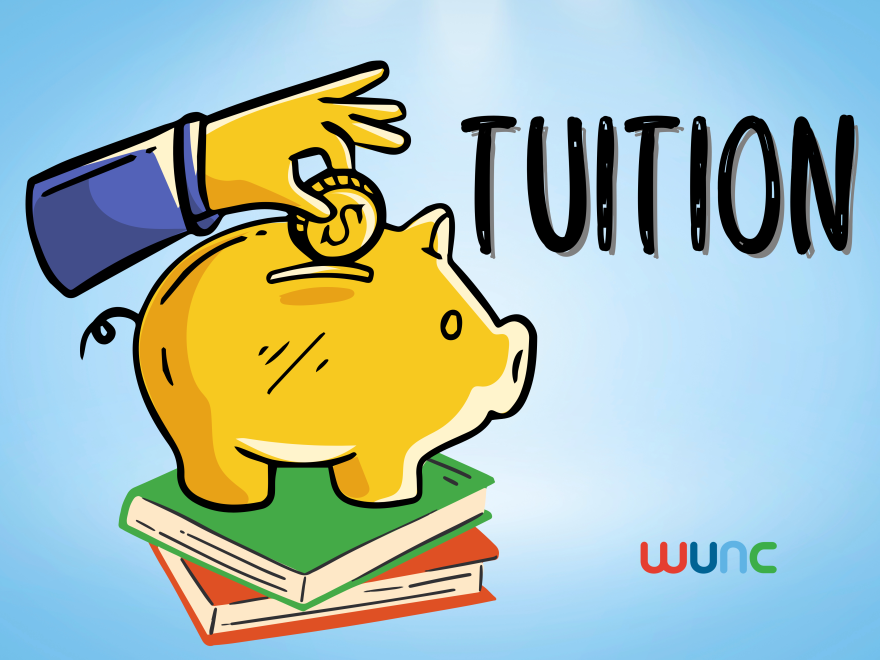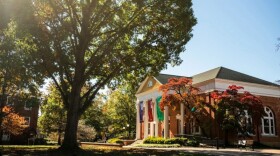New research shows that many North Carolina private schools accepting vouchers significantly increased their tuition after the state expanded funding for the Opportunity Scholarship program.
Starting this past school year, any North Carolina family could apply for a state-funded scholarship to attend a private school, regardless of their income or if they had already attended a private school without an Opportunity Scholarship. The scholarship was worth up to $7,468 per student this school year, with the award amounts based on a student's family income.
After this policy change passed, at least eight private schools raised their tuition to the exact amount of a full Opportunity Scholarship. Pungo Christian Academy in Beaufort County raised its tuition by nearly 40% in a single year, to just below the amount of a full scholarship. Grace Christian School in Sanford began requiring all students to apply for Opportunity Scholarships for the first time.
These examples caught the eye of Heather Koons, a researcher with the advocacy group Public Schools First NC.
Koons decided to track whether schools increased their tuition after this change, because research and reporting has found that this is happening in Iowa and Arizona, two other states that made vouchers universally available to all families.
Pungo Christian Academy's Head of School Marcy Sasnett said the school's tuition increase this year was the result of the school restructuring other fees that were previously billed separately, including books, technology and insurance fees, to combine them into the tuition price. Sasnett said the school's total cost of attendance rose by only 18% this year, not by the 40% that Public Schools First NC reported by comparing tuition rates alone. The school maintains a relatively low tuition price among private schools, at $7,400 per year.
"This adjustment was made in response to a variety of factors, including general inflation, growing operational needs, and increased course offerings," Sasnett said, adding that next fall, the school's tuition will rise by only 4%.
Grace Christian School in Sanford began requiring all prospective students to apply for the Opportunity Scholarships. An administrator there did not respond to a request for comment.
Tracking Tuition Rates for Schools that Accept Vouchers
For years, Koons has been keeping a spreadsheet of the tuition rates of private schools that accept Opportunity Scholarships, based on what the schools post publicly on their websites.
Koons is a longtime education researcher and has a PhD in educational measurement from UNC-Chapel Hill. She previously worked for the North Carolina Department of Public Instruction and then at a private education research organization for 15 years before working for Public Schools First NC.

In a fact sheet Public Schools First NC published on the tuition rate increases, Koons compared the annual tuition rate increases at schools for which she had three to five years of data collected. She had at least three years of data collected for 49 schools. She did not report on other schools for which she had fewer than three years of data.
Koons found that, on average, the private schools she tracked raised their tuition by about 15 percent the year that the voucher expansion took effect.
"That's a one year increase. That's huge. That's way more than inflation would merit," Koons said. "And the tuition corresponded very closely with the change in policy."
In the years prior to the major voucher expansion, schools raised their tuition on average between 2-8%.
Not all the private schools accepting vouchers raised their tuition following the policy change, but many did, and some did by much more than 15%, raising the average.
Reaction from Opportunity Scholarship advocates
In a statement, Parents for Educational Freedom in North Carolina, an advocacy group that promotes Opportunity Scholarships and assists families in submitting applications, said the scholarships exist to give families the power to choose the educational setting that best serves their child.
“As tuition rates shift from year to year, we encourage both schools and families to remember: the scholarship does not belong to the school — it belongs to the student,” the group said in the statement. “Families have the ability to take it wherever they find the best fit. PEFNC proudly supports parents who advocate for their children, and we encourage private schools to remain true to the spirit of opportunity, access, and partnership with families.”
Public Schools First NC argues the state's policy incentivizes schools to raise tuition
Public Schools First NC's report suggests that when state lawmakers changed the eligibility rules for Opportunity Scholarships, it incentivized private schools to raise their tuition to take advantage of the state funding available to their students.
The report argues the pattern of tuition increases indicate that private schools may be raising their tuition to take the most advantage of the state's Opportunity Scholarship funding to raise their overall funding levels.
"We are shifting from committing to providing free public education for all students to saying, 'Okay, well, we're now going to pay the private education for families throughout the state,' and that matters a lot, because right now we're not funding our public schools well enough," Koons said.
Koons points to the high number of vacant positions in public schools, and the state's teacher pay, which fell to 43rd in the nation in the latest national report.







